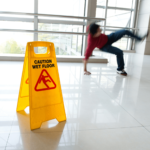
Unfortunately, social media profiles can also undermine a California personal injury claim. As experienced attorneys, we know the pitfalls and help our clients avoid them. Read on for more information about how to use social media responsibly during a personal injury claim.
Why Is Social Media Risky?
There are many reasons. But let’s look at two.
Severity Of Injury
In the typical personal injury claim, you seek compensation for your losses, such as car damage and bodily injuries. A defendant—or, more likely, their insurer—will look high and low for evidence to show you aren’t hurt. They can convince a jury to award you less compensation if they can find it.
Social media contains a wealth of information about you. Pictures, status updates, messages—all could be used to show your injuries are not as severe as you claim.
Comparative Fault
California is a comparative fault state. This means your compensation gets reduced by your proportion of fault for an accident. Let’s say you suffered $120,000 in losses, all in, for a car accident. But you’re 50% to blame because you were speeding during the crash. In this example, you only get 50% of that $120,000, or $60,000.
As you can imagine, defendants are eager to look for any evidence that shows you are at fault. Social media profiles might contain that information.
What On My Social Media Profile Casts Doubt On The Severity Of My Injuries?
Any number of things. An insurance adjuster might comb through your profile to find:
- Pictures of you enjoying yourself with family and friends. They could use this picture to show you aren’t really in pain and that you are exaggerating your injuries.
- Status updates showing you traveled. You might have gone to a niece’s graduation in a neighboring state. Even though you were in incredible pain, the defendant might use this update to cast doubt on the severity of your injuries.
- Status updates showing you didn’t attend rehab or physical therapy. The defendant will use this information to blame you for your disabilities.
- Any post where you complain about the quality of medical care you receive. A defendant might argue you should have gone to a different doctor. Again, they are blaming you for your pain.
How Can My Social Media Posts Impact Comparative Fault?
Any number of things could matter. For example, you might post your recollections of the accident on Facebook. If you aren’t careful, you might say something which sounds like you are admitting partial fault for the crash. Even something innocent like, “I didn’t see the driver!” could be used against you to show you were distracted.
Insurance adjusters also look for pictures of you drunk. That “funny” picture from college showing you hung over on some fraternity’s lawn? That might come back to show you were possibly driving intoxicated the day you were involved in an accident.
What Can I Do To Protect My Personal Injury Claim?
We recommend the following steps:
- Set all social media profiles to private. They all should have this option.
- Stop accepting new friend requests. You never know; an insurance adjuster could request that you add them as friends.
- Don’t post anything, even on your private account. You have no idea what someone might use against you.
- Remove any tags involving you. Some sites, like Facebook, let other users tag you in pictures. Ask friends not to do that or remove the tags yourself.
Can An Insurer Access My Private Account?
They would have to ask a judge for permission. Would a judge grant it? Possibly, if the judge is convinced your profile contains relevant information about the crash. This has happened in some states already.
Should I Delete Posts?
No. Please talk with your California personal injury lawyer first. Deleting a post could qualify as the destruction of evidence, which could result in sanctions. You could quickly end up losing a case because you destroyed evidence.
Also, there’s no reason to delete even damaging information. Your attorney can put it in perspective. For example, you might have pictures of you getting drunk in college. But that was four years ago. Your attorney can argue that it has nothing to do with your current situation or the accident.
We recommend putting profiles to private and quickly hiring a personal injury attorney to represent you.
Can I Use Evidence From The Other Driver’s Social Media Posts?
Yes! This road runs both ways. Just as the other side can try to use your social media, your attorney can do the same. For example, the defendant could have admitted fault for the accident in a post. We might use that statement to bolster your compensation claim.
How Long Should I Stop Posting On Social Media?
Ideally, you will wait for your personal injury case to conclude. That means you’ve signed a settlement and gotten a check, or a jury has decided in your favor, and there’s no appeal. In the meantime, you can stay in touch with friends using the telephone—the old-fashioned way!
Experienced California Personal Injury Attorneys
Social media is ingrained in our lives. For some, it’s the first thing they check when they wake in the morning. Nevertheless, there’s no reason to do anything which might undermine a personal injury claim. Simple mistakes on social media are fortunately easy to avoid. By following our tips, you can put your best foot forward for receiving a settlement.
Law Offices of Samer Habbas & Associates, PC can assist anyone hurt in an accident. Please contact our firm today, 888-848-5084, to learn more about your ability to sue for compensation.
Recent Post
-
April 15, 2024
-
April 12, 2024
-
April 9, 2024
-
April 8, 2024
-
April 8, 2024









